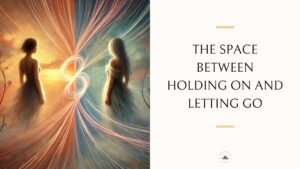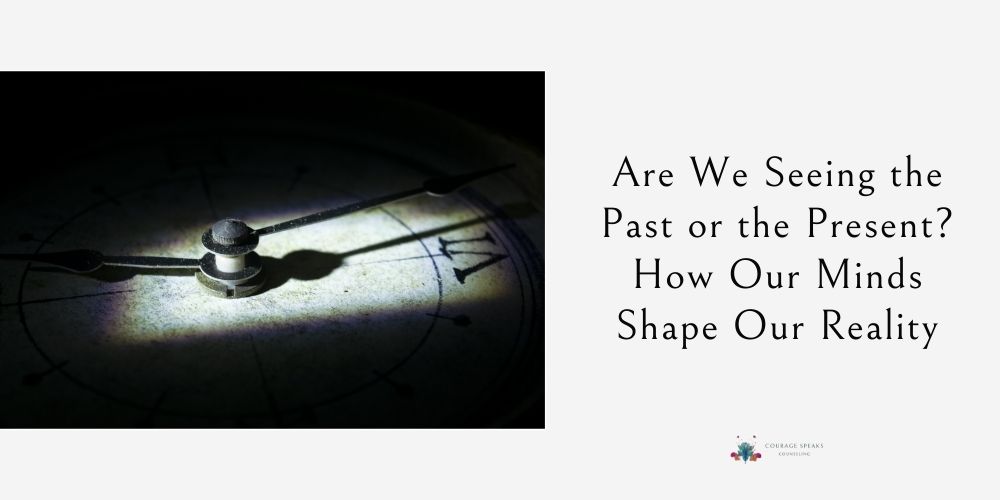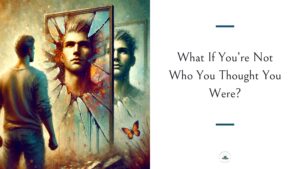Imagine you’re in the middle of a conversation with a friend or partner. They say something small, maybe even unintentional, but suddenly, it feels like an emotional earthquake. You’re flooded with a reaction that feels out of place with the moment. It’s as though you’ve been transported to another time and place, one that feels like now, but really belongs to a version of you from the past.
We all carry these moments within us—moments where the lines between past and present blur, where old emotions spring to life and shape how we interpret the here and now. Often, these reactions come from parts of us that are still responding to a past reality, triggered into action by present experiences. In their attempt to protect us, they bring back old memories, emotions, and expectations, projecting them onto the people around us today.
The Shadow of the Past
In many ways, these parts of us act like protectors, forever scanning our environment for anything that feels familiar to past pain. Maybe there was a time in your life where you felt unimportant or dismissed. Now, when someone seems distracted or forgetful, it can feel like you’re back in that experience, as if you’re once again being overlooked. These parts of us hold onto memories that they believe are relevant to our survival. They don’t want us to get hurt, so they stay on high alert, re-living past moments in order to avoid future pain.
But while their intentions are noble, these parts can create confusion, making us question the reality of our present relationships. Are we seeing the person in front of us as they truly are, or are we seeing echoes of people from our past?
The Mind’s Projection Screen
When we carry these unresolved experiences, it’s as though our mind becomes a projector, casting past relationships, fears, and beliefs onto our present-day relationships. If we once felt abandoned or rejected, this part may start scanning for any hint of that feeling. And if it senses even the faintest resemblance, it sounds the alarm, filling our minds with thoughts like “They don’t care” or “I’m not important.” It’s as if we’re back in that past relationship, re-living those emotions, while the present reality slips out of focus.
These projections aren’t just mental exercises; they shape how we interact with others. We may become defensive, withdrawn, or even hostile, all in an effort to protect ourselves from a threat that isn’t actually there. In a way, these parts become so focused on the past that they miss what’s truly happening in the present.
The Power of Curiosity
If we begin to notice these patterns, we have a chance to shift how they shape our lives. Curiosity, rather than judgment, is key here. When a big reaction arises, we can ask, “Is this feeling based on what’s happening now, or does it remind me of something from before?” By inviting these parts to share their perspective, we can start to understand what they’re trying to protect us from.
Often, just acknowledging these parts can soften their grip. We can let them know that while their intentions are good, we’re safe enough now to handle the present as it is, without needing the past to guide every move. This opens the door for a more accurate experience of our relationships, one where we see people as they are, not as stand-ins for past figures in our lives.
How Parts Influence Our Relationships
When we carry our past wounds into the present, they can shape our behavior and limit our ability to connect. This is why a comment from a friend can suddenly feel like rejection, or why a partner’s need for space feels like abandonment. We’re not reacting to them; we’re reacting to a familiar, deeply felt memory. And these parts are doing their best to prevent a repeat of that painful experience.
Yet by acknowledging this, we create space for something new. We can remind ourselves, and our protective parts, that the person in front of us is not the same person from the past. With this awareness, we’re free to relate to people as they are rather than through the lens of who they might resemble.
Finding Reality in the Present
Our past will always be part of us, but it doesn’t have to dictate our future. By gently exploring these parts and understanding their motives, we can create the safety we need in the present. This helps us build connections based on who we are now, and who others truly are, not on outdated fears or assumptions.
Ultimately, our parts aren’t barriers to be removed; they’re reminders of the journey we’ve taken. With compassion and patience, we can bring them into the present, creating room for relationships built on clarity, honesty, and true connection. In time, this practice of questioning our reactions and recognizing the past within them becomes a doorway to deeper, more meaningful connections—connections that are grounded in reality rather than in shadows of the past.
Embracing Shadows, Illuminating Hope,
Chelsey Fjeldheim, LCSW
Empowering Souls on the Path of Healing
Copyright © 2024 Chelsey Fjeldheim, Courage Speaks Counseling




